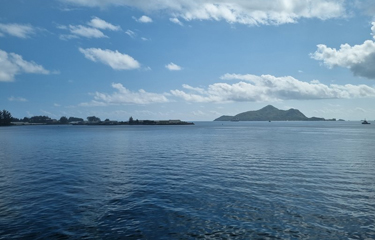Sustainable Fisheries Partnership (SFP) has announced a new partnership with the Thai Union Group, one of the world’s leading seafood producers.
SFP was founded in 2006 and is a marine conservation organization working towards healthy oceans and sustainable seafood by leveraging the power of seafood buyers and retailers in the seafood supply chain. Thai Union is the world’s third largest seafood company as well as one of the largest producers of shelf-stable tuna products, and it owns and operates Chicken of the Sea and Red Lobster. The company’s annual sales exceed THB 141 billion (USD 4.5 billion, EUR 4.1 billion) and it has a workforce of more than 44,000 people.
“Our partnership with Thai Union continues SFP’s tradition of innovation and creating fisheries improvement at scale and globally by working with major seafood buyers to leverage change in their sourcing and supply chains,” SFP Founder and CEO Jim Cannon said in a press release. “Lasting conservation and environmental improvement can only be achieved with industry leadership by companies like Thai Union, who can advance widespread adoption of best sustainability practices.”
Thai Union initially began working with SFP in early 2021 by participating in SFP’s Ocean Disclosure Project – a web-based platform to facilitate transparency in seafood sourcing by helping companies publicly disclose their seafood sourcing and information about sustainability of those sources – in which transparency is a part of the Thai Union’s SeaChange Program. Thai Union aims to further improve its transparency in the company’s supply chains and consider wider impacts on biodiversity. The company believes in actively driving change by requiring suppliers to participate in fishery improvement projects (FIPs) and supply chain roundtables (SRs).
“Thai Union is constantly exploring new opportunities to strengthen transparency across its entire operations, and our partnership with SFP is further evidence of that unwavering commitment,” Thai Union Group Director for Sustainability Adam Brennan said. “A key element of this new partnership will be Thai Union’s ability to use SFP’s Seafood Metrics system, which helps businesses evaluate the sustainability of their seafood, understand the effectiveness of existing improvement efforts, and identify the most important priorities for improvements.”
With this partnership and the use of SFP’s Seafood Metrics, Thai Union will be able to continue to improve monitoring, transparency, and traceability of its supply chains and will assess and monitor its global wild and farmed tracks information on governance quality, target stock health, human rights risks, and environmental impacts in a company’s source fisheries.
Additionally, Thai Union is a part of SFP’s Protecting Ocean Wildlife initiative, which is an industry-led, international effort to protect endangered, threatened, and protected (ETP) species. Therefore, Thai Union will participate by conducting a bycatch audit of its tuna supply chain and source fisheries to review bycatch risks to sharks, seabirds, marine mammals, and sea turtles. Included in the monitoring are additional sustainability indicators such as certifications, human rights risk assessment, NGO ratings, and traceability.
SFP’s tools and technologies are some of the most-used methods for monitoring and assessing progress in seafood sustainability and fisheries improvement. They include the Ocean Disclosure Project, the leading global transparency platform, FishSource, and Seafood Metrics.
"At SFP, we are working toward a world where the oceans are healthy, all seafood is produced sustainability, and everyone has access to sustainable seafood. SFP's mission is closely aligned with Thai Union’s ambitious SeaChange program,” SFP Global Markets Director Kathryn Novak said. “Our new global partnership will amplify and enhance the efforts of both organizations to achieve healthy oceans and sustainable seafood."
In order to address these challenges, SFP plans to launch a series of initiatives that aim to protect ocean wildlife, ensure small-scale fisheries can participate fully in fisheries management, combat IUU fishing, and improve regional management of aquaculture production.
“We have made tremendous progress, but our work is not yet done,” Cannon said. “To make seafood sustainable, we need to tackle tough challenges that current fisheries improvement efforts have not yet solved.”
Photo courtesy of Thai Union







